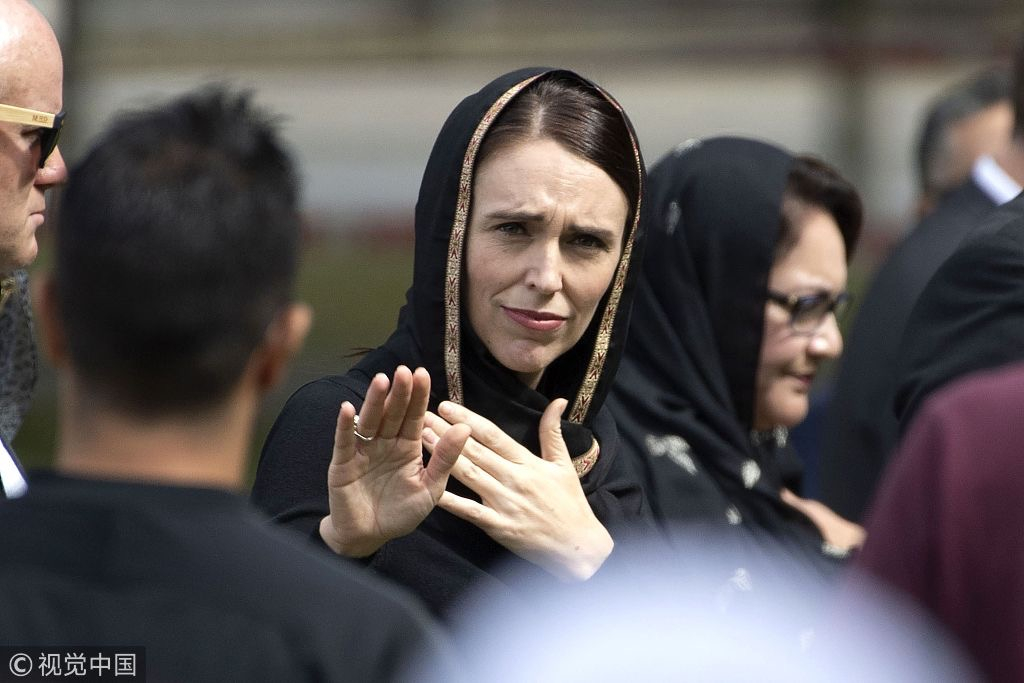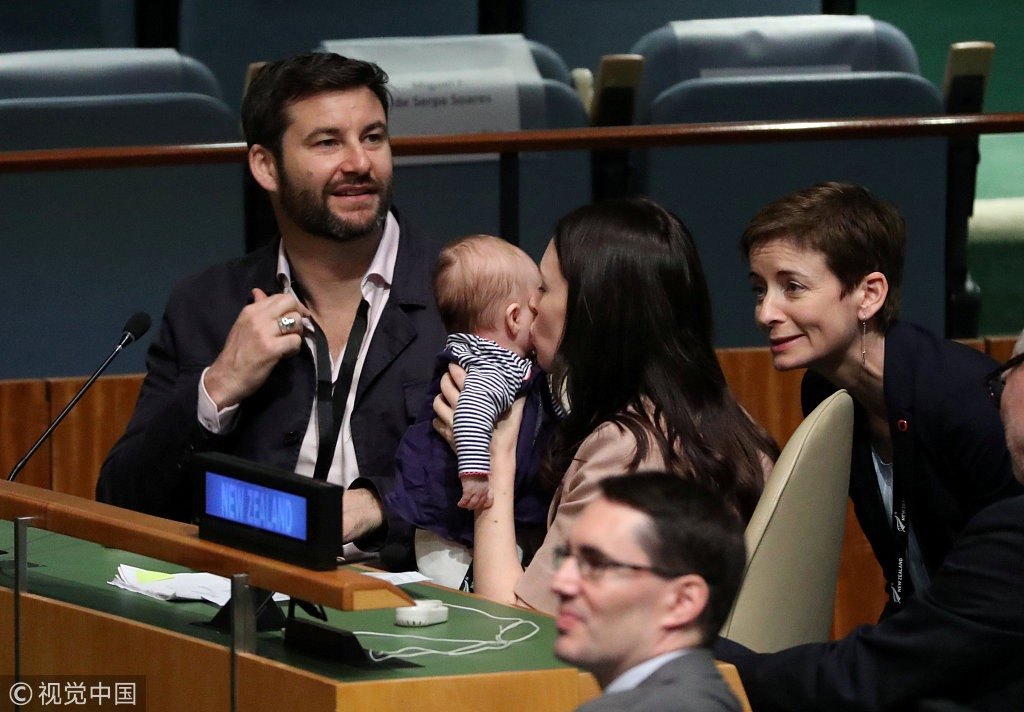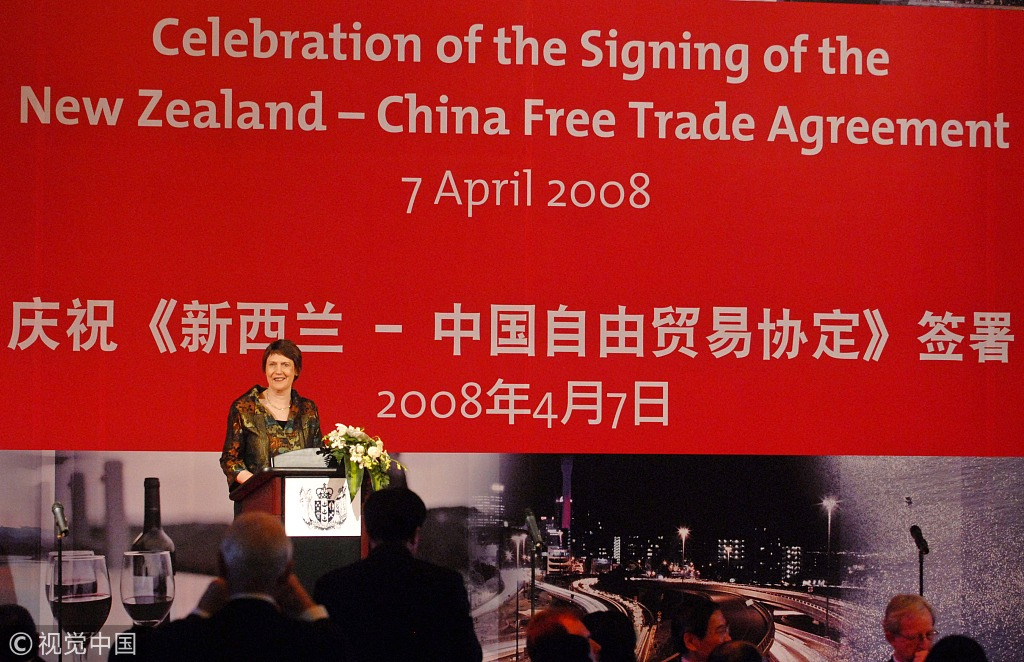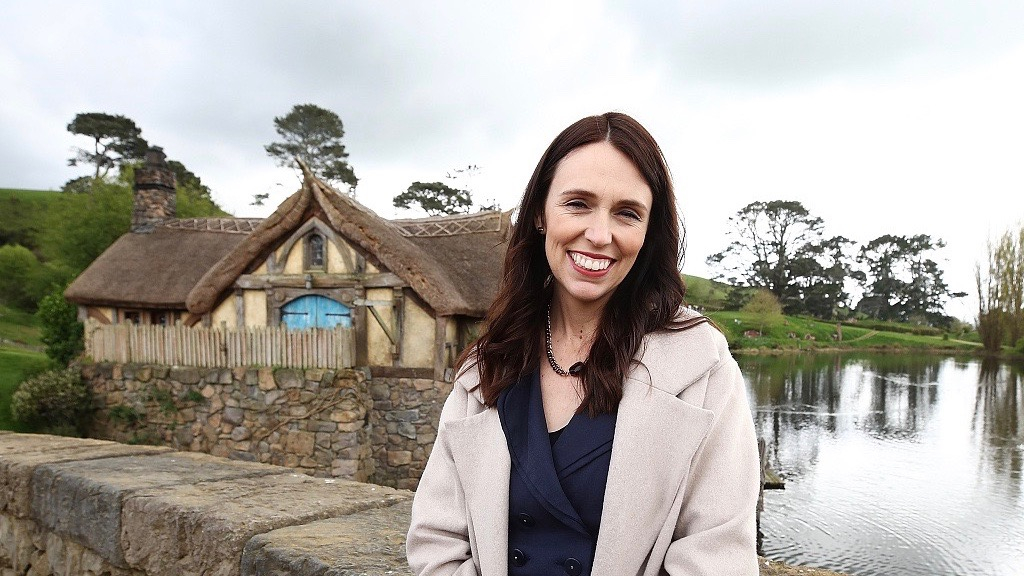Jacinda Ardern, the Prime Minister of New Zealand, has risen meteorically to become a global political icon.
The world's youngest female leader has won over the international community with her love and grit after the worst mass shooting in the country's modern history. Headlines portrayed her response as a departure from conventional Western reactions to massacres and repudiated other leaders for falling short of her in the wake of national tragedies. By resisting inflammatory rhetoric and bringing in a sweeping ban on military style semi-automatic guns, she had begun the healing process for a grieving nation.
“I always wanted to help people and I realized that politics was the way to do that,” she said in September 2017, one month before entering the Beehives.
Her foray into politics was very different yet similar to her path before: music. It might be hard to imagine that the elegant, demure prime minister used to be a DJ with a nose piercing. In old photos, Ardern can be seen spinning away on mixers before a cheering audience. She's also a lover of Scotch and fancies adventures – her idol is Ernest Shackleton, the legendary figure in the Heroic Age of Antarctic Exploration.

New Zealand Prime Minister Jacinda Ardern gestures as she departs following a gathering for congregational Friday prayers and two minutes of silence for victims of the twin mosque massacre, at Hagley Park in Christchurch, March 22, 2019. /VCG Photo
New Zealand Prime Minister Jacinda Ardern gestures as she departs following a gathering for congregational Friday prayers and two minutes of silence for victims of the twin mosque massacre, at Hagley Park in Christchurch, March 22, 2019. /VCG Photo
She's the rebellion.
Ardern was born Jacinda Kate Laurell Ardern in Hamilton on the North Island of New Zealand in 1980. Her father was a police officer and her mother worked in a school canteen. Raised in a conservative Mormon family in rural Waikato, she grew up, however, deviating from the conventional path.
Ardern fought to defend her older sister while in elementary school. She campaigned for girls to wear skirts instead of pants in high school, and founded an Amnesty International group there. She left the Mormon faith in her early 20s given its parochial views on gay rights and feminism.
Her aunt Marie Ardern – a longstanding member of the country's Labor Party – brought the teenaged and uncertain Ardern to a wee campaign for New Plymouth MP Harry Duynhoven's reelection.
Ardern joined the Labor Party at the tender age of 17. When Duynhoven won, she went to study politics and public relations at the University of Waikato and graduated in 2001 with straight As.
After serving as a researcher for former New Zealand prime minister Helen Clark and as a policy advisor for former UK prime minister Tony Blair – whom she said she had never met – she secured a Parliament seat at 28, becoming the “baby of the house.”
In 1998, her classmates at the former Morrinsville College voted her most likely to become prime minister. Now she's living up to that dream standard.

New Zealand Prime Minister Jacinda Ardern kisses her baby Neve before speaking at the Nelson Mandela Peace Summit during the 73rd United Nations General Assembly in New York, U.S., September 24, 2018. /VCG Photo
New Zealand Prime Minister Jacinda Ardern kisses her baby Neve before speaking at the Nelson Mandela Peace Summit during the 73rd United Nations General Assembly in New York, U.S., September 24, 2018. /VCG Photo
Jacindamania
"Jacindamania" dates back to her campaign days. When asked by a male anchor about her plan to have children, she replied, “For other women, it is totally unacceptable in 2017 to say that women should have to answer that question in the workplace.”
Since then, the Ardern-centric mania swept the country with T-shirts, tote bags printed with her smiling face and the “Let's do this” slogan.
The youngest prime minister of New Zealand since 1856 is considered fresh hope in the Labor Party. On the political stage, Ardern became the poster child for liberal democracy, fighting against conservative Western norms. As if to prove her non-establishment zeal, Ardern became the country's first prime minister to march in a gay pride parade. She had previously kicked off the country's Women's March at the U.S. consulate in Auckland after Trump's inauguration in January 2017, supporting feminism in the face of a U.S. president who had made remarks objectifying women. To top it off, Ardern became the country's first leader in almost 30 years to give birth while in office.

Former New Zealand prime minister Helen Clark delivers a speech at the celebration party for the Free Trade Agreement between New Zealand and China in Beijing, April 7, 2008. /VCG Photo
Former New Zealand prime minister Helen Clark delivers a speech at the celebration party for the Free Trade Agreement between New Zealand and China in Beijing, April 7, 2008. /VCG Photo
Her credentials as an advocate for progressive social issues seem unassailable. Yet as she pushes her agenda assertively, she has done so with compassion for those who may disagree. At the World Economic Forum in Davos in January, Ardern told her fellow leaders, "Don't be on the wrong side of history" when it comes to addressing climate change. She even acknowledged the political concerns of those who are reluctant to change, noting that they "don't have to cede power by acting on climate change. There's nothing to fear about your individual status."
With her visit to China, it will be interesting to see whether she brings her diplomatic demeanor along. A decade ago, New Zealand signed a free trade agreement with China, with then Chinese premier Wen Jiabao saying that the relations between the two countries were at their "best in history." Since then, the FTA has hardly seen progress, partly due to New Zealand's role as one of the "Five Eyes," sharing intelligence with the U.S. and the UK. With competing interests, New Zealand seems caught in the middle. But its relationship with China goes back decades, as it was the first to recognize China's market economy status.
With Ardern at the helm, she could mend or further strain the ties at this critical juncture. So far, it has taken 18 months since she assumed the position of prime minister to visit China. Yet she has also talked about New Zealand's commitment to "sustaining a constructive and comprehensive relationship" with the major economic power. However, whether anything of substance concerning trade and other bilateral exchanges will materialize during her visit to Beijing remains to be seen.
(Top photo: New Zealand Prime Minister Jacinda Ardern tours Hobbiton in Matamata, New Zealand, October 4, 2018. /VCG Photo)





